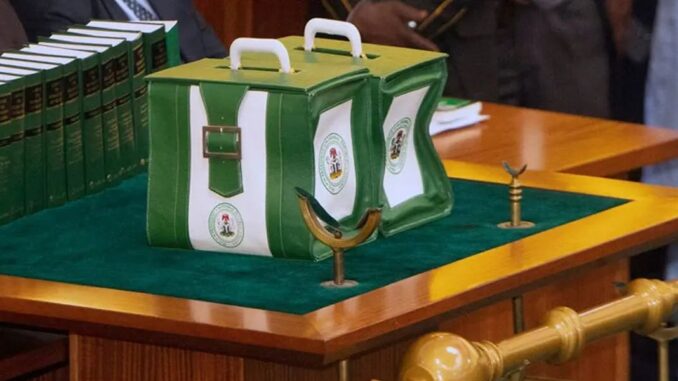
– –
A new report shows that 32 of Nigeria’s 36 states depended heavily on federal government money last year, getting at least 55% of their total income from these allocations.
The report, released by civic-tech group BudgIT, warns that states’ heavy reliance on federal transfers puts them at risk, especially when oil prices change or federal funding shifts.
The report provides a detailed analysis of states’ fiscal sustainability, examining how well they balance internally generated revenue against federal allocations.
– –
Join Our WhatsApp Group
Don’t miss out on any real-time information. Join our WhatsApp group to stay updated.
A statement released at the end of the report launch read, “32 states relied on FAAC receipts for at least 55 per cent of their total revenue, while 14 states relied on FAAC receipts for at least 70 per cent of their total revenue.
“Furthermore, transfers to states from the federation account comprised at least 62 per cent of the recurrent revenue of 34 states, except Lagos and Ogun, while 21 states relied on federal transfers for at least 80 per cent of their recurrent revenue.
“The picture painted above buttresses the over-reliance of the state governments on federally distributable revenue and accentuates their vulnerability to crude oil-induced shocks and other external shocks.”
BudgIT reported that total revenue across all 36 states increased by 31.2%, rising from N6.6 trillion in 2022 to N8.66 trillion in 2023. This boost came mainly from increased federal allocations after the government ended petrol subsidies, freeing up more money to share with states.
– –
However, the report cautions that states’ dependence on federal allocations makes them vulnerable to changes in oil prices and other external factors.
Lagos State led all states in revenue, generating N1.24 trillion, which represents 14.32% of all states’ combined income.
In terms of expenditure, the report noted that the total spending of the 36 states reached N9.78tn in 2023, representing a 21.19 per cent increase from the previous year.
Lagos State led in expenditure, accounting for over N1.49tn or 15.23 per cent of the total.
Rising personnel costs, overheads, and capital investments were key drivers of the increased spending.
Rising personnel costs, overheads, and capital investments were key drivers of the increased spending.
– –
The statement noted, “Several other states, including Ogun, Anambra, Cross River, Kwara, Kaduna, and Edo, managed to generate IGR sufficient to cover at least 50 per cent of their operating costs, with the rest relying on federal transfers.
Join Our WhatsApp Group
Don’t miss out on any real-time information. Join our WhatsApp group to stay updated.
“In contrast, states such as Akwa Ibom, Imo, Taraba, Yobe, Bayelsa, and Jigawa required over five times their IGR to meet operating expenses, highlighting significant dependence on FAAC revenues and aid and grants.
“Of note is that all 36 states managed to raise enough revenue—comprising IGR, federal allocations, aid, and grants—to fully cover their recurrent expenditures. This indicates that no state needed to borrow to fund any portion of its recurrent spending.”
However, the report also revealed that total state debt rose by 38.1 per cent, with the combined debt stock reaching N10.01tn by the end of 2023.
BudgIT has urged state governments to adopt measures that would enhance their fiscal sustainability by boosting internally generated revenue, reducing reliance on FAAC, and improving debt management practices.
The report calls for innovative approaches to resource management and revenue mobilisation to ensure that states can weather external economic shocks and maintain financial stability.
At the launch of the 2024 State of States report in Abuja, BudgIT’s Country Director, Gabriel Okeowo, highlighted the importance of evaluating how states manage their resources amidst growing revenue.
He emphasised that the report, now in its ninth edition, analyses the fiscal decisions of all 36 states, focusing on internally generated revenue and dependence on federal allocations.
Okeowo revealed that this year’s report explores subnational investments in healthcare, noting that states allocated N2.3tn to the health sector in 2023 but spent only 58.16 per cent of the amount.
Intel Region News is on WhatsApp!
Share News with us via Email:
:
– –
Leave a Reply